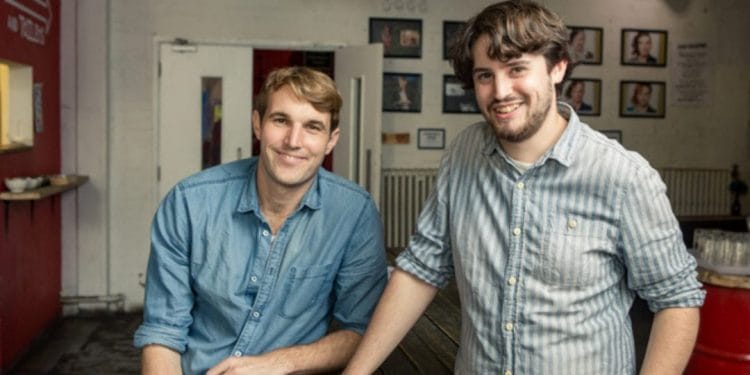Chris Foxon from Papatango joined us to tell us more about his new book, Being a Playwright.
Papatango are launching their first book, Being a Playwright, how would you describe it?
The book demystifies how theatre works, in order to enable anyone who has a story to tell to build a career as a playwright. For too long, writers have predominantly come from more privileged or insider backgrounds, relying on connections or know-how to break through. We want the book to level the playing field and make it possible for anyone with talent and passion to create new plays at the highest level. It explains all the practical factors that determine a writer’s chances of success, sharing tips from a host of award-winning industry insiders to open up pathways for writers.
How is Being a Playwright different to other books on the subject?
There are plenty of insightful books by brilliant playwrights about how to write a good play, but none that explores all the pragmatic factors that can determine a writer’s chances and opportunities. Put simply, having a great script is not always enough; knowing how the business works, how to give that script the best possible advocacy, is as crucial – and that’s something that it’s very hard to learn. The book therefore explains all the practical aspects of being a playwright, from training options and alternatives to training, to how to showcase scripts, find collaborators, agents or publishers, apply for commissions or funding, conduct R&D and productions, and a myriad of other things that can make or break a writing career.
What do you think is the biggest mistake that new writers make, and how will this book help them avoid that mistake?
We wouldn’t want to say that there’s a recurring ‘mistake’ to avoid, as that implies the limitations in the industry are the fault of the artists creating work or that they should fit into a prescriptive working model! We try to explore lots of different approaches and strategies to suit different writers. Nonetheless, it’s probably true that two of the hardest things for writers are how slow and risk-averse the industry can be; learning how to navigate that, to turn a rejection of a script into a chance to meet for coffee and explore other opportunities, can be vital in building towards eventual success.
Why is now the right time to release this book?
Papatango turned ten this year, and having spent a decade championing new playwrights and launching new plays that would otherwise, perhaps, never have been seen, we wanted to share our learning and experiences to help all writers. In our time, resources for playwrights have only shrunk, with literary departments being cut, provision for feedback becoming almost non-existent, and commissions for new writers decreasing. We’ve launched as many opportunities as we can to counter that, each year producing two new playwrights on full commissions and running free training, performances and publication for over 3000 people, but the book means we can reach more people and hopefully enable them to become playwrights despite today’s challenging landscape.
Why is it so important to you to nurture new writing?
Our motto is simple: all you need is a story. We believe that everyone has the right to have their stories heard, but without active investment in making theatre transparent and accessible, we’ll only hear from the same voices and the same small slice of society.
How else are you supporting new writing?
We run a range of opportunities, all completely free and open to anyone. The annual Papatango New Writing Prize awards a full production, publication, commission and royalties – and also gives feedback to every entry. With around 1400 submissions a year, it’s the biggest annual platform for new plays in the country.
We also run a resident playwright scheme, to commission a writer and take them through to production and publication. The writers we’ve launched through these schemes have won BAFTAs, OffWestEnd, Alfred Fagon and National Theatre Foundation awards and premiered worldwide. GoWrite, our education and participation programme, provides playwriting training, one to one advice, bursaries, performances and publication in state schools, community centres and local venues for thousands of people nationwide. It has kick-started plays that have gone on to Hampstead Theatre, the Vaults Festival, Theatre Royal Bury St Edmunds and Luton Hat Factory. We’re dedicated to making new writing for everyone and the book is just part of that.

















